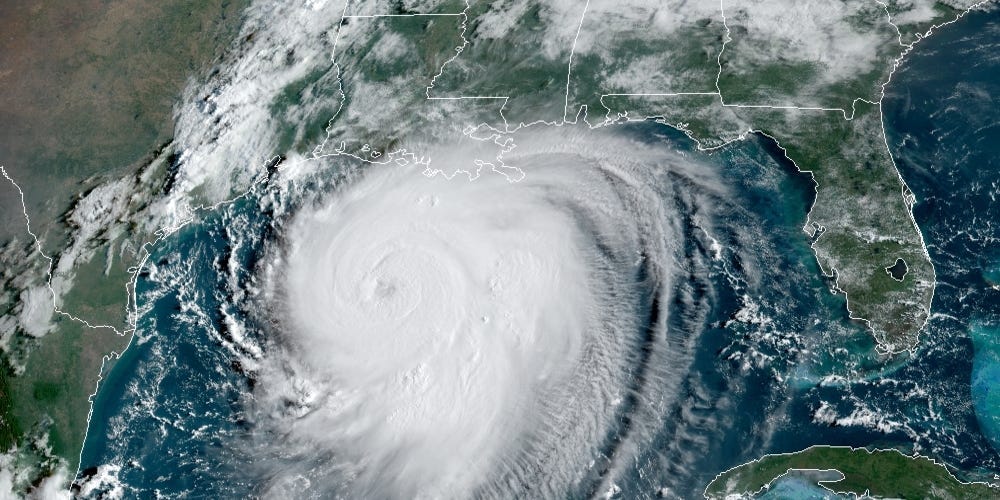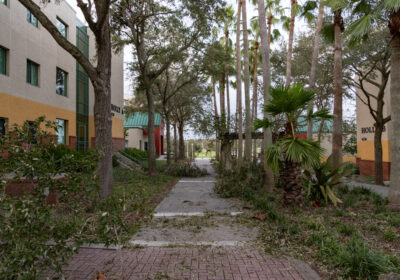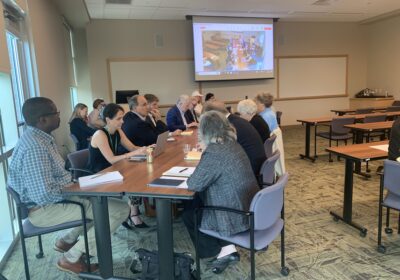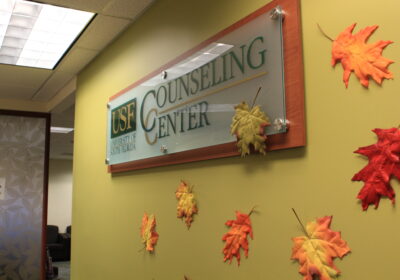USF studies focus on hurricane safety and precautions amid COVID-19

The pandemic has already created a whirlwind of concerns, and this year’s hurricane season hasn’t alleviated much of them. In fact, it’s given Floridians some new concerns regarding how to practice hurricane safety while still remaining wary of COVID-19.
USF personnel dipped their toes into several areas to collaborate on three research projects focused on the crossroads between hurricane safety and COVID-19 precautions — a study looking into hurricane evacuation procedures during COVID-19, one on hurricane shelter operations during pandemics and one called the Converge Working Group.
These studies intend to look into key challenges that local officials and emergency management workers may face while working on hurricane preparation and evacuation procedures during the pandemic. They are funded by various institutions including USF as part of its Rapid Response Research Grant program, a National Science Foundation Rapid Response grant and the Natural Hazard Center based out of the University of Colorado.
Elizabeth Dunn, an instructor at USF’s College of Public Health who specializes in community resilience and disaster preparedness for vulnerable populations, is involved in all three and said she’s achieved some perspective on preparing for all parts of emergency planning that come with the threat of a hurricane.
“I think, even though the studies are different, one focuses a lot more on residents and then the other one focuses a lot more on the workforce, so it’s kind of cool to be part of both sides of the research because it’s really important for planners to know what your population is going to actually do to be able to better plan for it,” said Dunn. “So I think it kind of rounds around and gives a very dynamic perspective from all angles to make sure that your plans are appropriate.”
This kind of research became urgent due to the hyperactivity of this year’s hurricane season with 23 storms formed in the Atlantic and Gulf of Mexico since June 1. The season might even extend longer than its usual end date of Nov. 30, according to Dunn.
The Converge Working Group, organized to address the gaps and concerns regarding this year’s hurricane season during COVID-19, held six workshops in May and June to prepare for new issues as a result of a hurricane-pandemic crossover, including public messaging, evacuations, sheltering logistics and telehealth services.
Notes from each workshop have been compiled into “After-Action Reports” (AARs) and were finalized and posted to USF Health’s website for public access this month. There is an AAR for each workshop that was conducted, including ones on “Vulnerable Populations and Planning Considerations for the 2020 Hurricane Season,” “Health and Infection Control Measures During the 2020 Hurricane Season” and “Psychological Adjustment for the 2020 Hurricane Season During COVID-19 Pandemic.”
“That’s the key, even when we were putting together these [AARs], we wanted to make sure they were developed and ready,” said Dunn.
“We went through each and every transcript and made sure all the key questions, recommendations and any guidelines that were referenced or any kind of really great material where people said ‘hey this is something that you really should consider.’ We put all of that into these after-action reports, so that if you are a practitioner or a planner and you’re saying ‘I want to know what other people are thinking,’ you can access it.”
USF Health has also considered the needs of local emergency management teams so that its research may be immediately applicable, and not just for research purposes.
In the study on hurricane evacuation procedures led by Jennifer Collins, a professor at the School of Geosciences, surveys were sent out to approximately 7,000 Florida residents to determine what they would do in case of a hurricane evacuation — and included any questions that local municipalities and hurricane response forces would have.
“We made sure to call local emergency management personnel, people that were with the weather service, people that did a lot of communications and public messaging, just so that we can get in and make sure that we’re asking not just questions that we want to know, but what they want to know,” said Dunn.
“I think that’s really important when you’re doing some of this work to make sure it’s not just what you think is important, but also to have that line of communication in terms of what your community partners need or could use.”
This project has also gotten a chance to see what happens when the world of hurricane dangers and the pandemic collide with Hurricane Laura and Hurricane Sally.
“Following the two hurricanes that hit Louisiana and Alabama, Hurricane Laura and then Hurricane Sally, there was a secondary survey that looked at post-evacuation decision-making in terms of those that had actually been affected by a hurricane during COVID,” said Dunn.
Part of Hurricane Sally passed through Pensacola as well, which has a significant student population at the University of West Florida (UWF). With Tampa on the Gulf Coast, there’s a possibility that USF students could also have to prepare for the dangers of a hurricane.
“The best advice I can always give is to have a plan,” said Dunn. “Just know that if you were told you had to leave campus and you live on campus, where would you go, or if you live off-campus do you think the structure you’re in would withstand hurricane-force winds? So that’s key, knowing your environment, knowing where you live, knowing if you could, you should evacuate and go to a shelter.”
While COVID-19 concerns may be an ongoing issue, Dunn said that preparing for hurricanes and evacuation plans is still important, especially as a Florida resident.
“Even when people think ‘Oh it’s not in a flood zone’ or you think that you’re outside you’re in the safe area, it doesn’t necessarily mean that’s the truth,” said Dunn.
“So I think that’s where we want to make sure that people aren’t just sitting in their homes [when they need to evacuate], thinking that COVID as the major threat when storm surge is also extremely deadly.”






